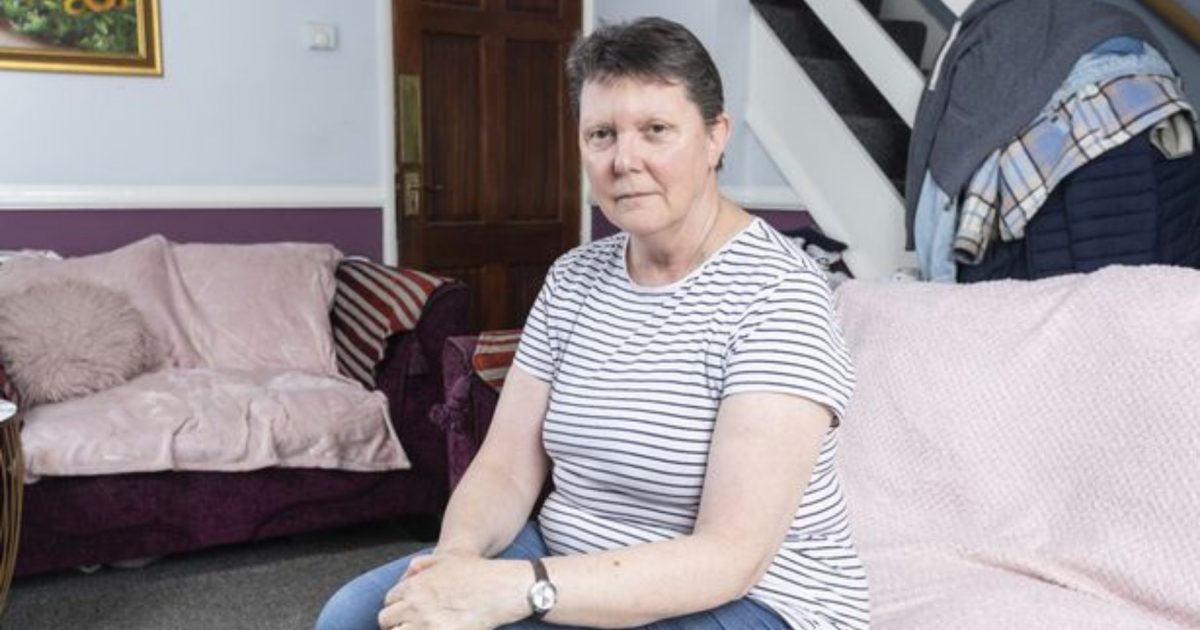How A COVID Infection Saved This Retired Nurse's Life
- Jan Dea, 61, was taken to hospital after coming down with COVID-19 in late 2020. Though she went for a mammogram every three years, her dense breast tissue had kept doctors from detecting cancer that showed up in a scan.
- Mammograms can sometimes miss cancers located in dense breast tissue, but new technologies such as 3D mammograms are far more precise.
- With her cancer in remission, Dea is now working to help others by raising money for research and to support other people diagnosed with the disease.
In late 2020, Jan Dea’s husband, 62-year-old Brian, tested positive for the virus. A week later, so did Dea, 61, and her 24-year-old daughter Katie. Her symptoms soon turned serious.
Read More“COVID Saved Your Life”
“I had to go to hospital alone and the next day they took me for a scan to check for blood clots in my lungs. They injected me with a special contrast dye which helps highlight the areas being examined," said Dea. “Next day the consultant came to see me. She said whilst there were no blood clots, when they used the contrast dye, they found a mass in my right breast."Dea said she was "shocked" by the news, especially since she went for a mammogram every three years.
"The consultant told me that because I have dense breast tissue it doesn't always show cancer up on a mammogram," said Dea. “I was referred to a breast specialist, but I couldn’t go until I was Covid negative. It had been 23 days of having COVID. I just didn’t think it was possible. After isolating at home and having two negative tests, I was able to see a consultant in December. After a biopsy they confirmed it was breast cancer. I was told if I hadn’t been admitted with Covid, by the time I’d have felt it, it would have been too advanced."
According to Dea, her doctor told her "COVID saved your life."
What To Know About Mammograms And Dense Breasts
While mammograms are an effective tool for detecting breast cancer, they can be less effective for women with dense breast tissue.
"The fatty breast tissue has a gray appearance, so an X-ray beam just runs right through it, but the dense structures, they block the X-ray, so that looks white. Unfortunately, cancers also block the X-ray, so they also look white. When you have a white cancer hiding in white, dense breast tissue, it can be missed," said Dr. Connie Lehman, chief of the breast imaging division at Massachusetts General Hospital.
Luckily, there are other technologies that can help find cancers lurking in dense breast tissue. Digital mammographies provide a clearer picture for doctors to look at, while 3D tomosynthesis mammography "allows us to find more cancers and significantly reduce our false positive rate," said Lehman.
"With digital mammography, we’re taking thin slices through that breast tissue like slices of a loaf of bread and look at each of those slices independently," said Lehman. "So those thin slices help us find things that were hidden under all the multiple layers. And also important is some of the things that look like they could be cancer, when we look through the thin slices, we see this is just overlapping, normal breast tissue."
Lehman recommended women request 3D mammograms whenever possible.
I Have Dense Breasts. Do I Need A 3D Mammogram?
Fighting To Help Others
Unfortunately for Dea, the pandemic also meant delays in getting care. By the time she was due for surgery in January 2021, the United Kingdom was in lockdown once more.
“The hospital I was meant to have surgery at was shut down. But my consultant said I needed the operation within six weeks because the cancer was fast growing," she said. “So thankfully she managed to get me on a list at another hospital. They took out the area of the cancer and some lymph nodes which luckily it hadn’t spread to."
After undergoing a condensed treatment of five days of radiotherapy, Dea was able to ring the bell signifying the end of treatment.
Today, she is in remission and back working at a restaurant and inn.
“Now that my treatment has finished, I’m fundraising for Breast Cancer Now to help raise money for research and support that they provide for anyone affected by breast cancer," she said. “I’ve lost my mother, father, and Molly across the road – who was like a second mum to me – to cancer. It almost claimed me. I am going to host an Afternoon Tea for family and friends at home and do a takeaway version at work. I hope as many people as possible will take part."
Genetic Testing What Is It and Why Is It Important? An Interview with Breast Cancer Previvor Erika Stallings
Learn more about SurvivorNet's rigorous medical review process.


